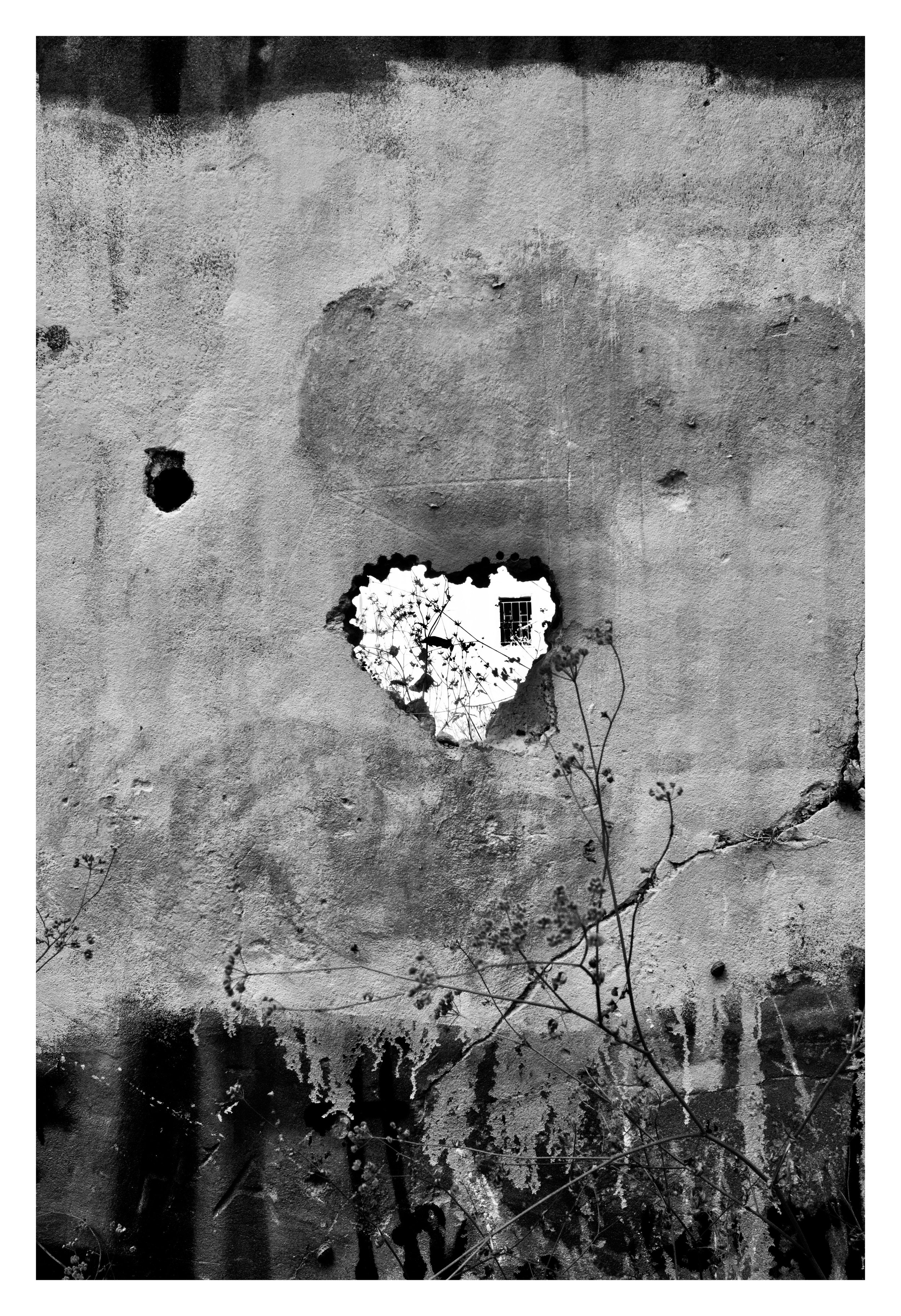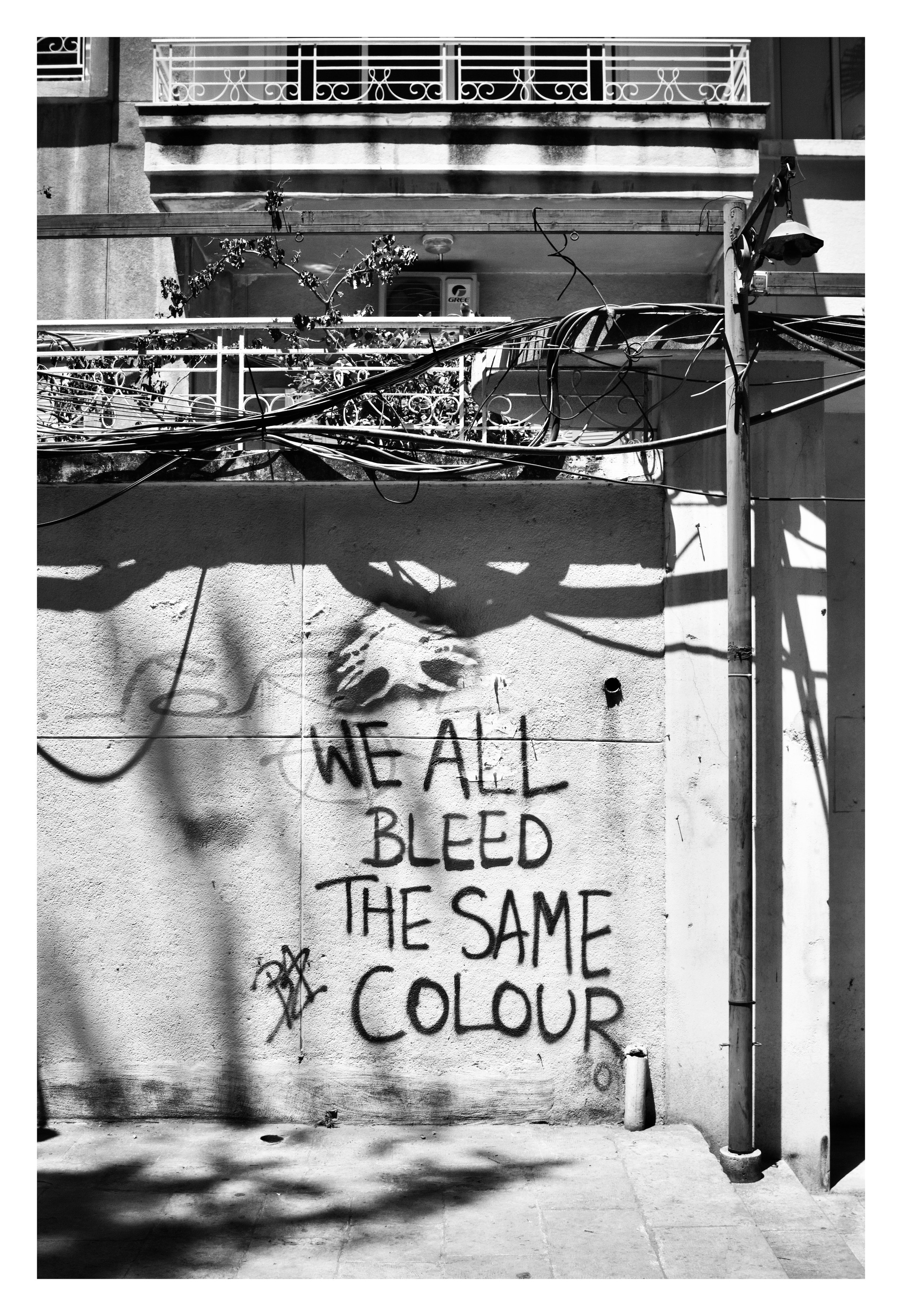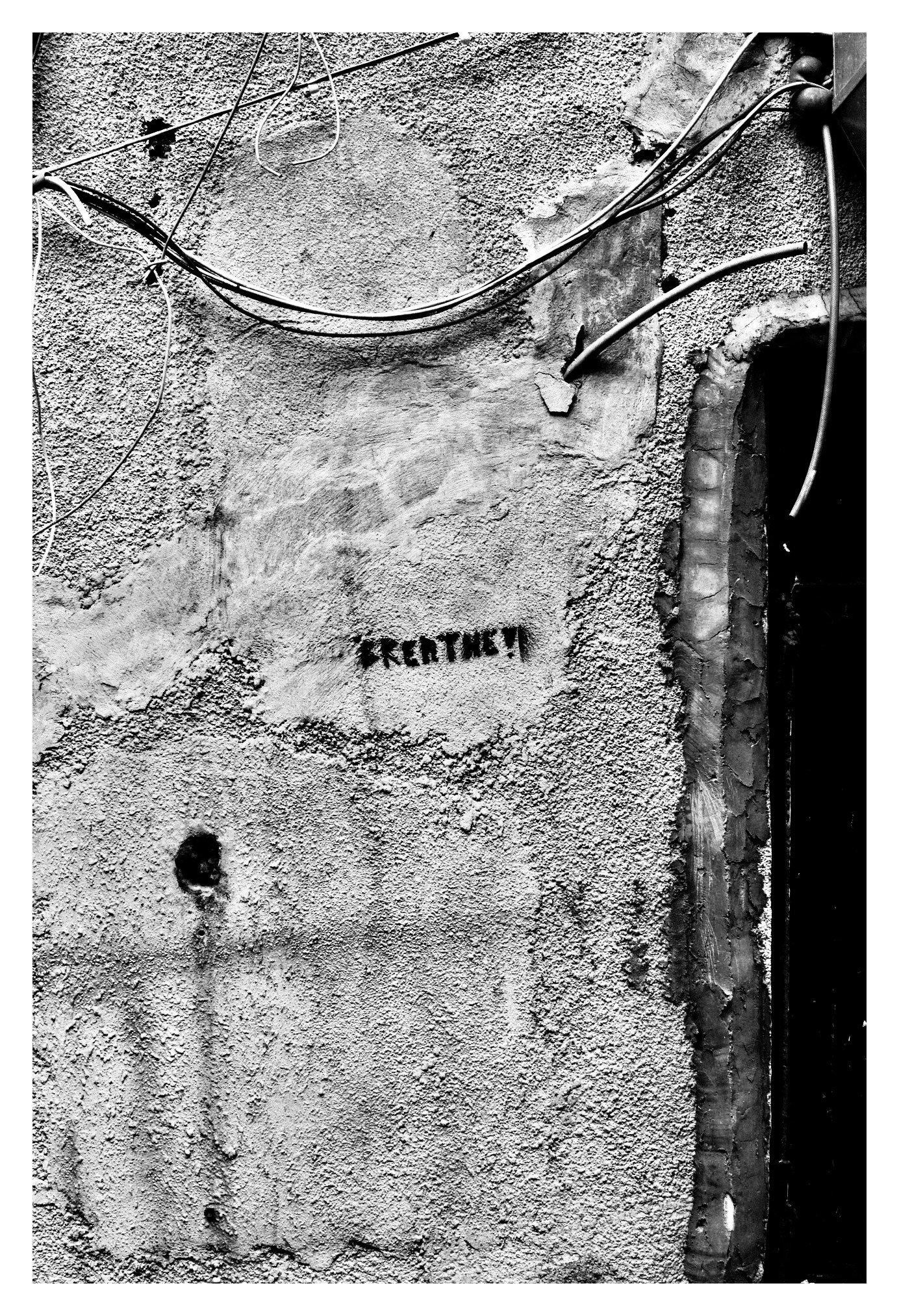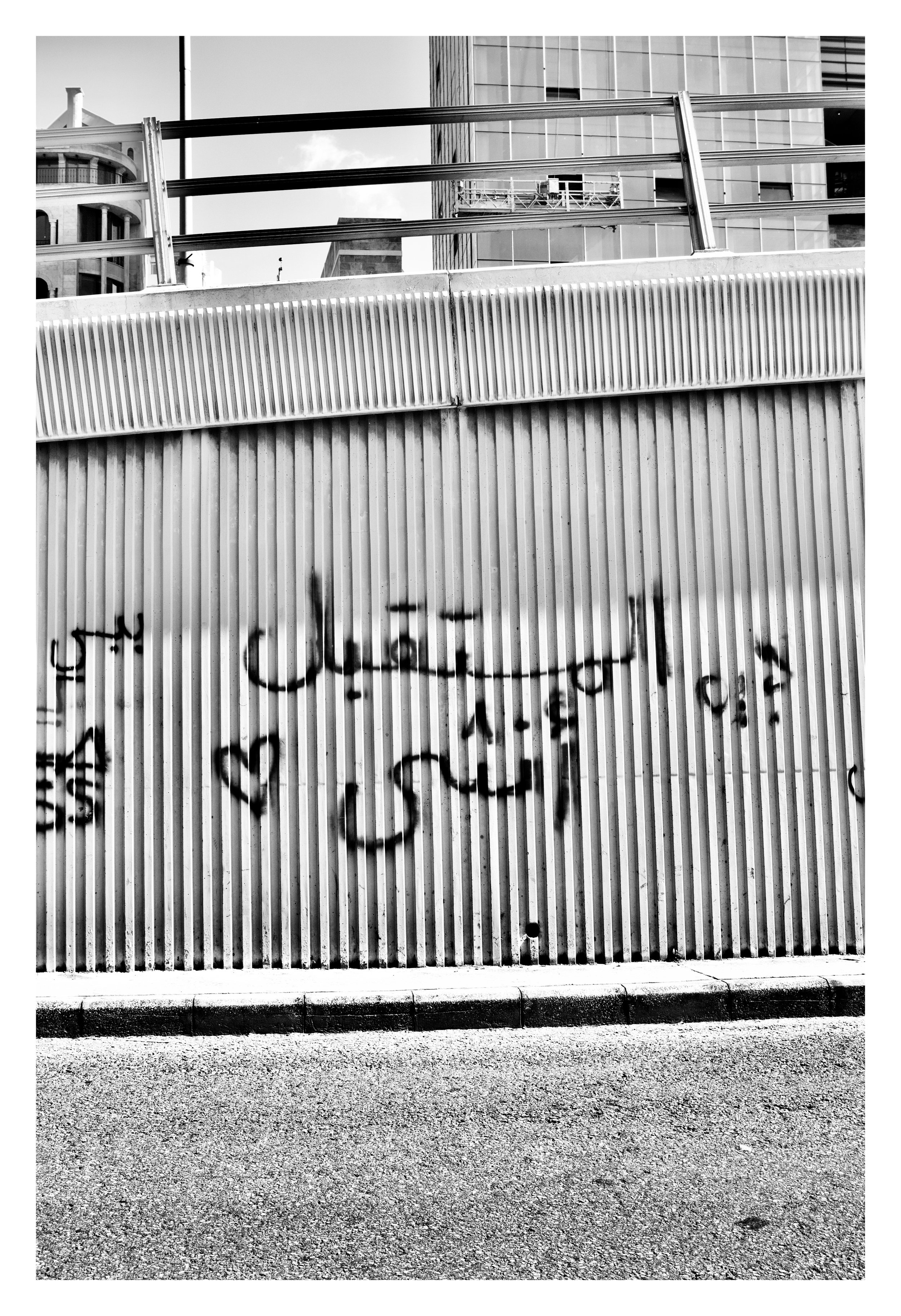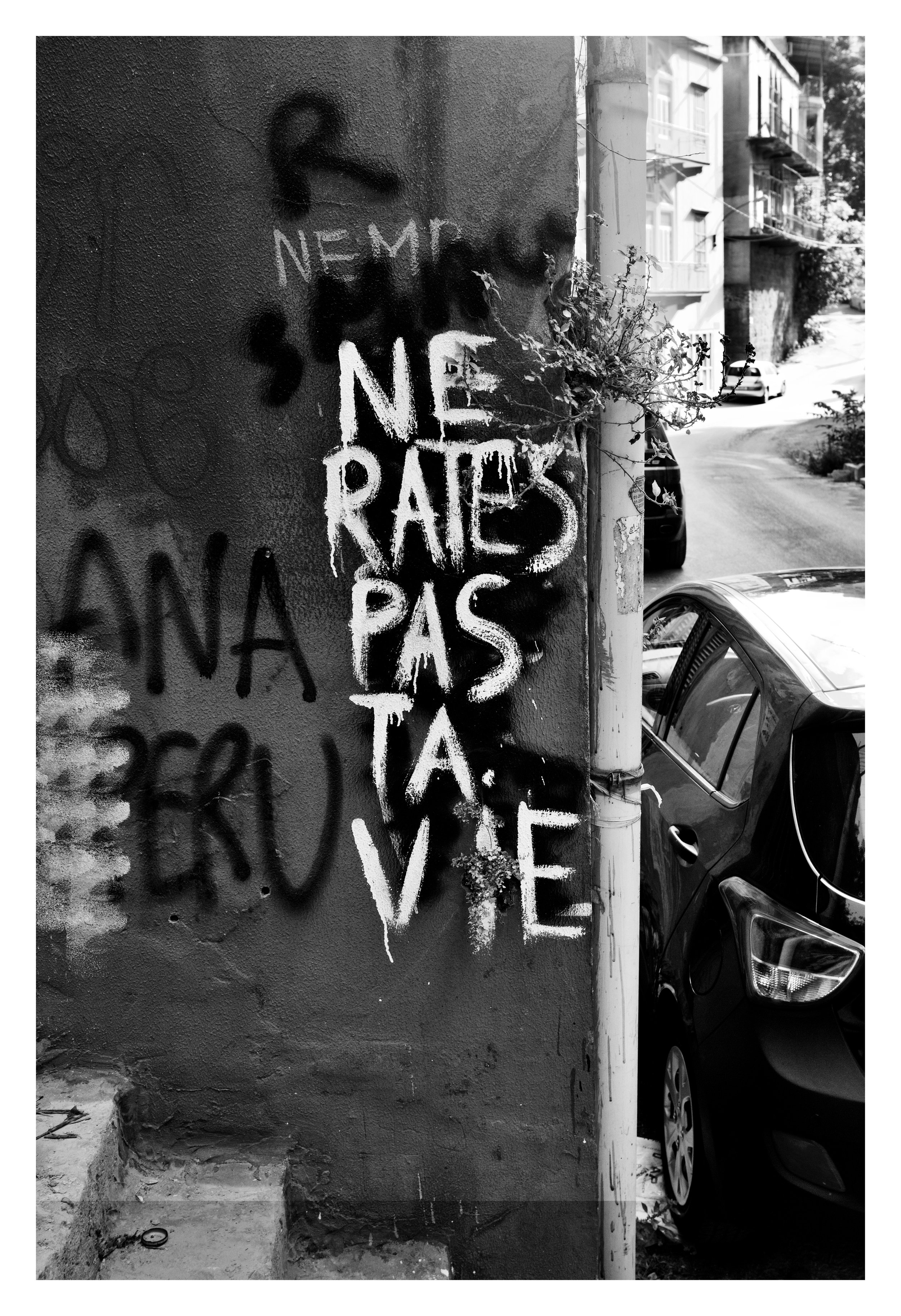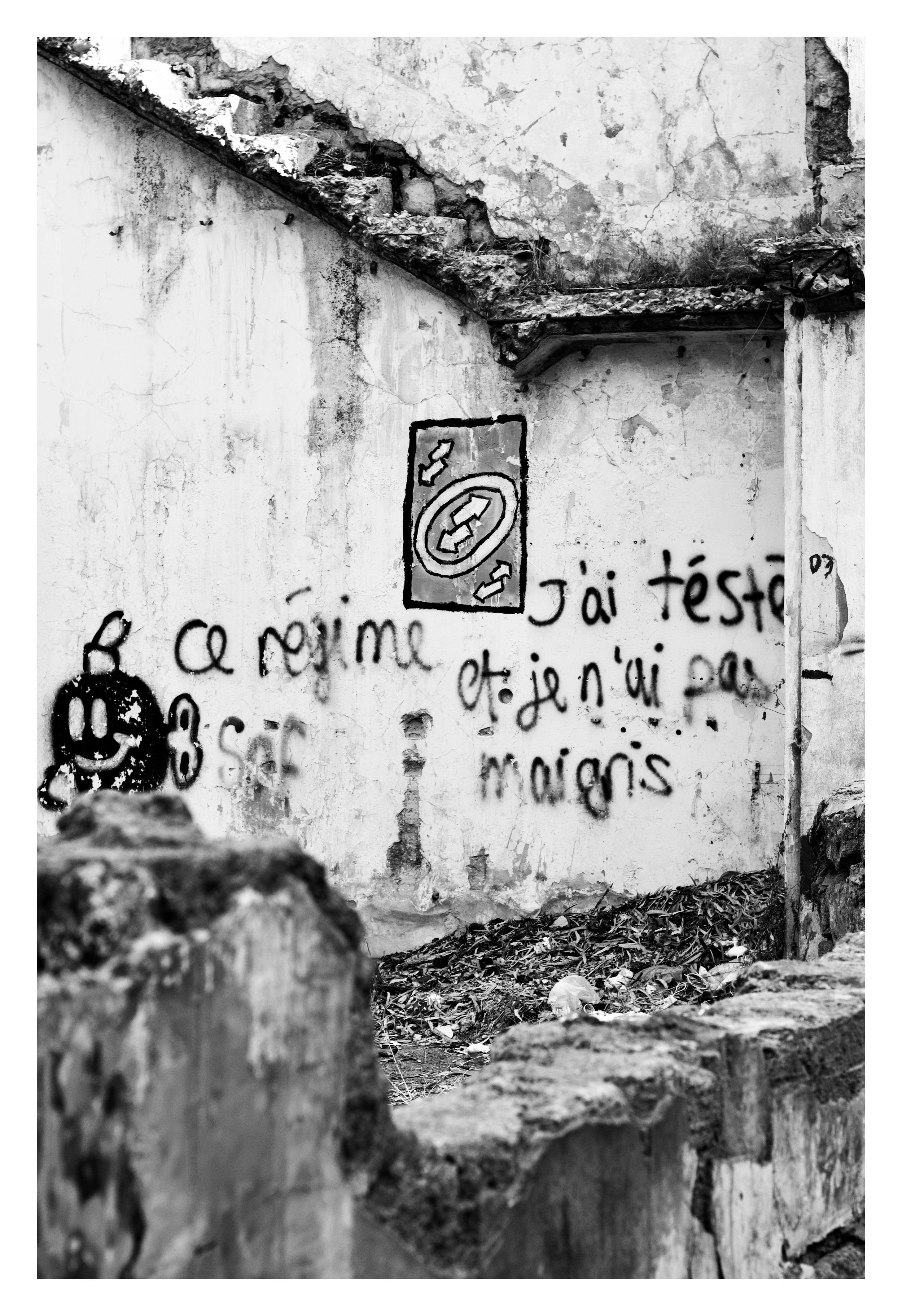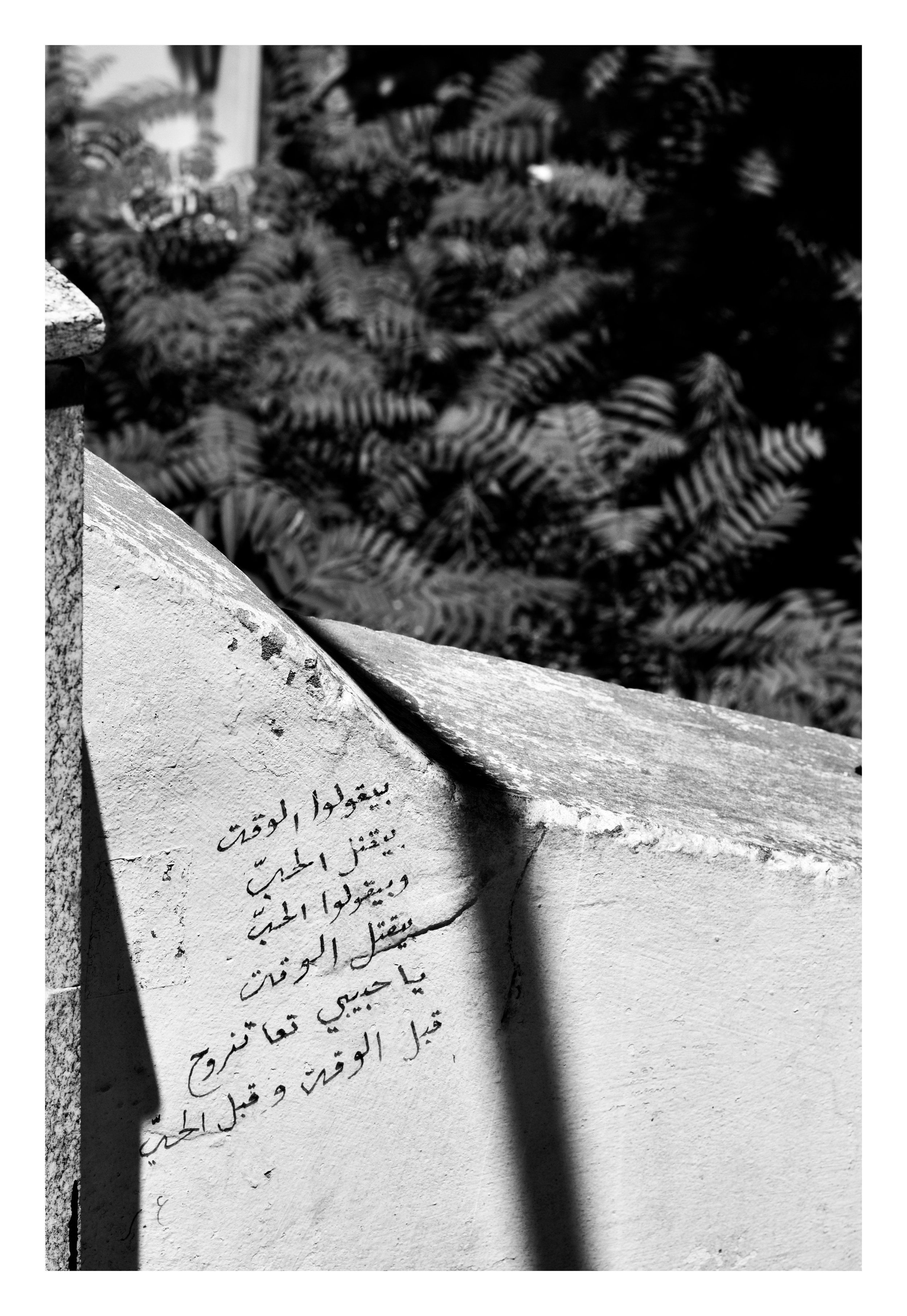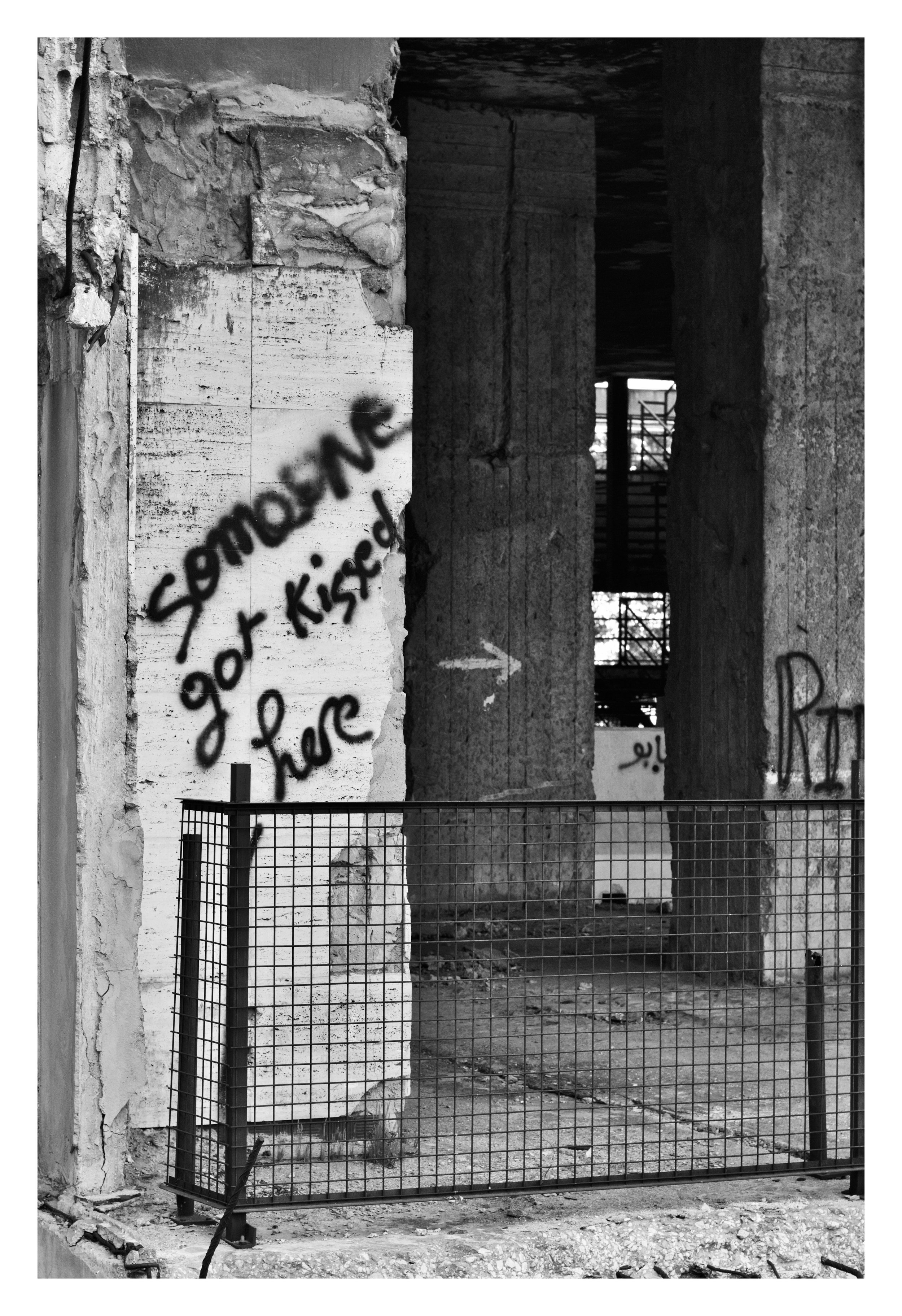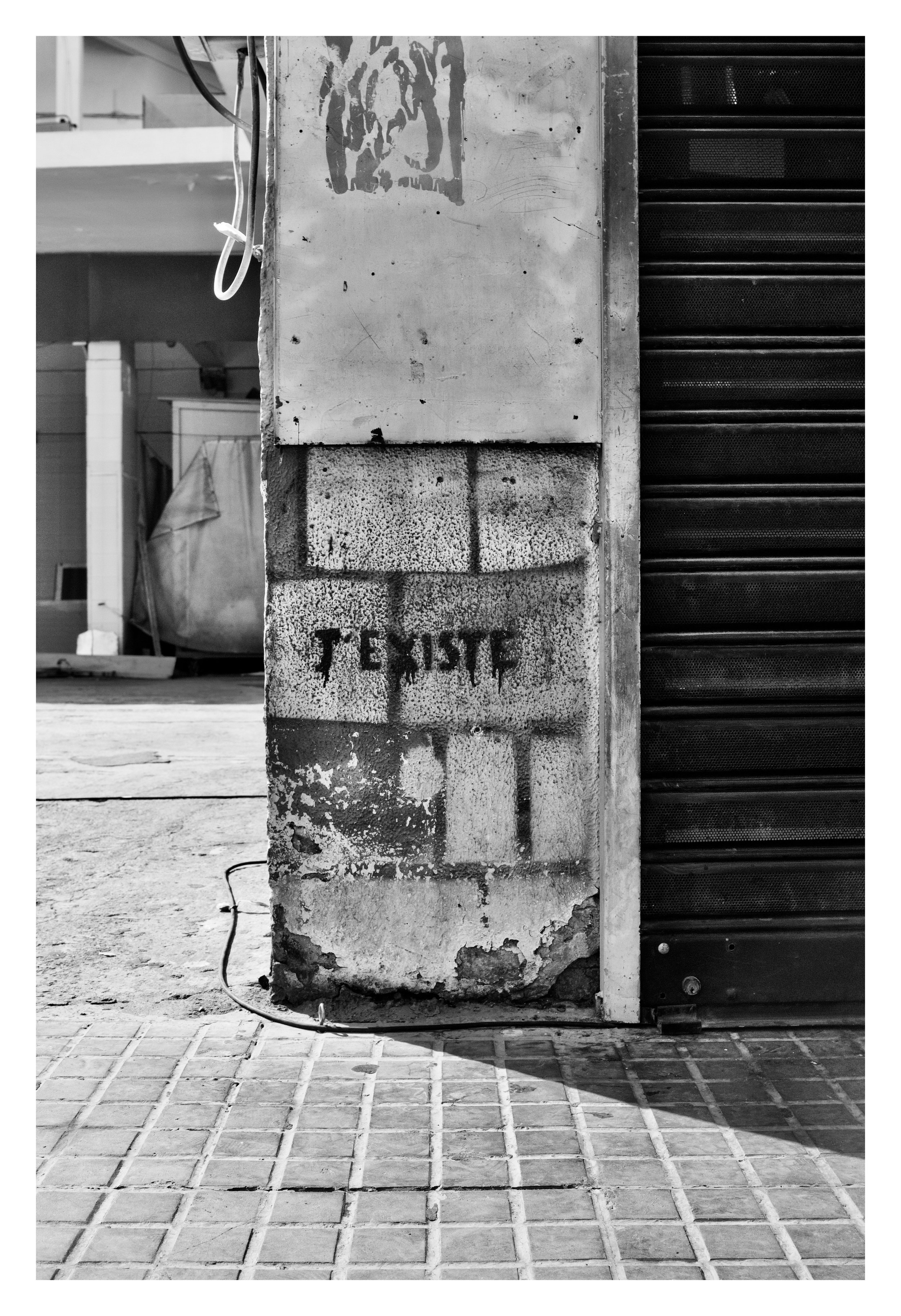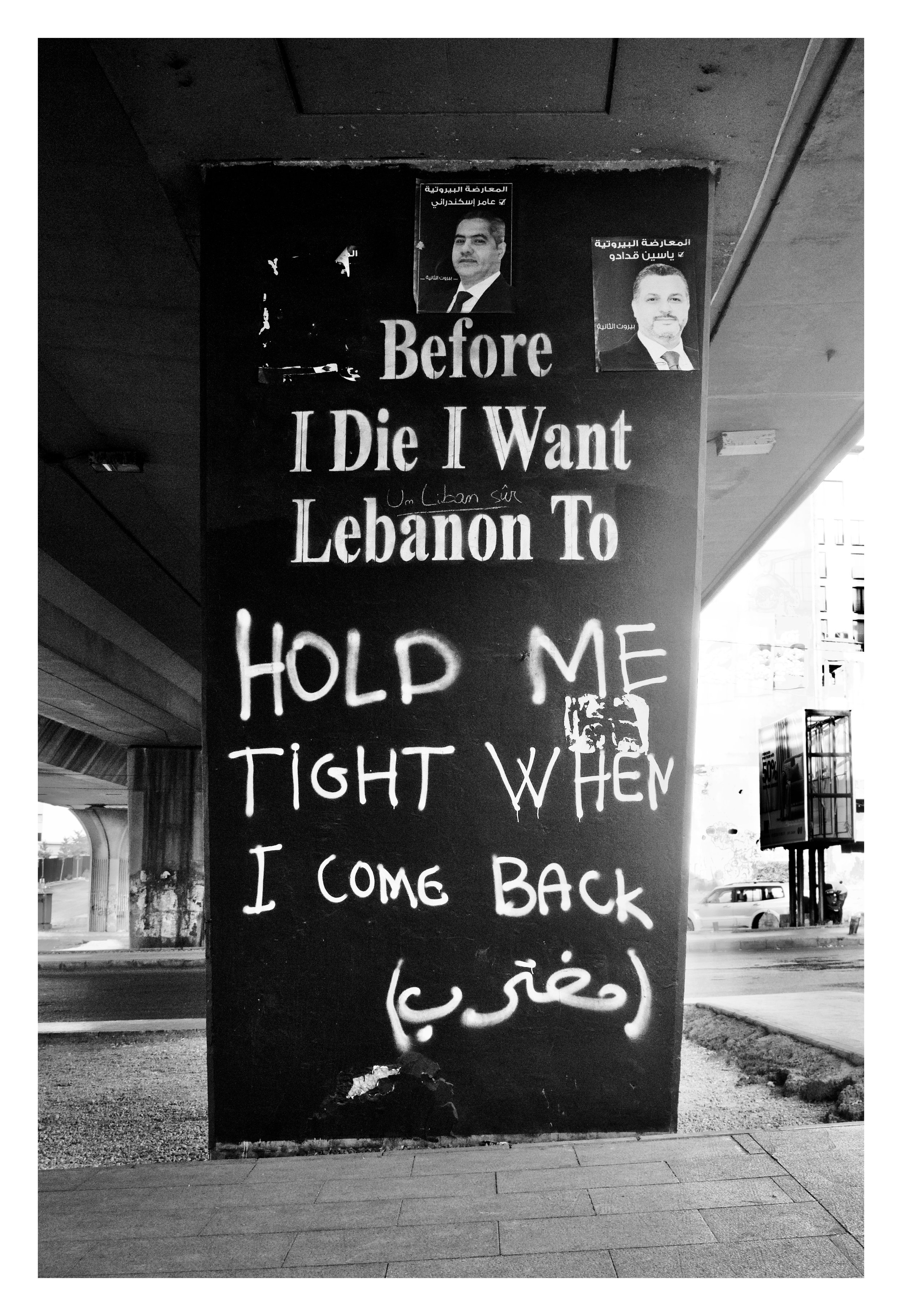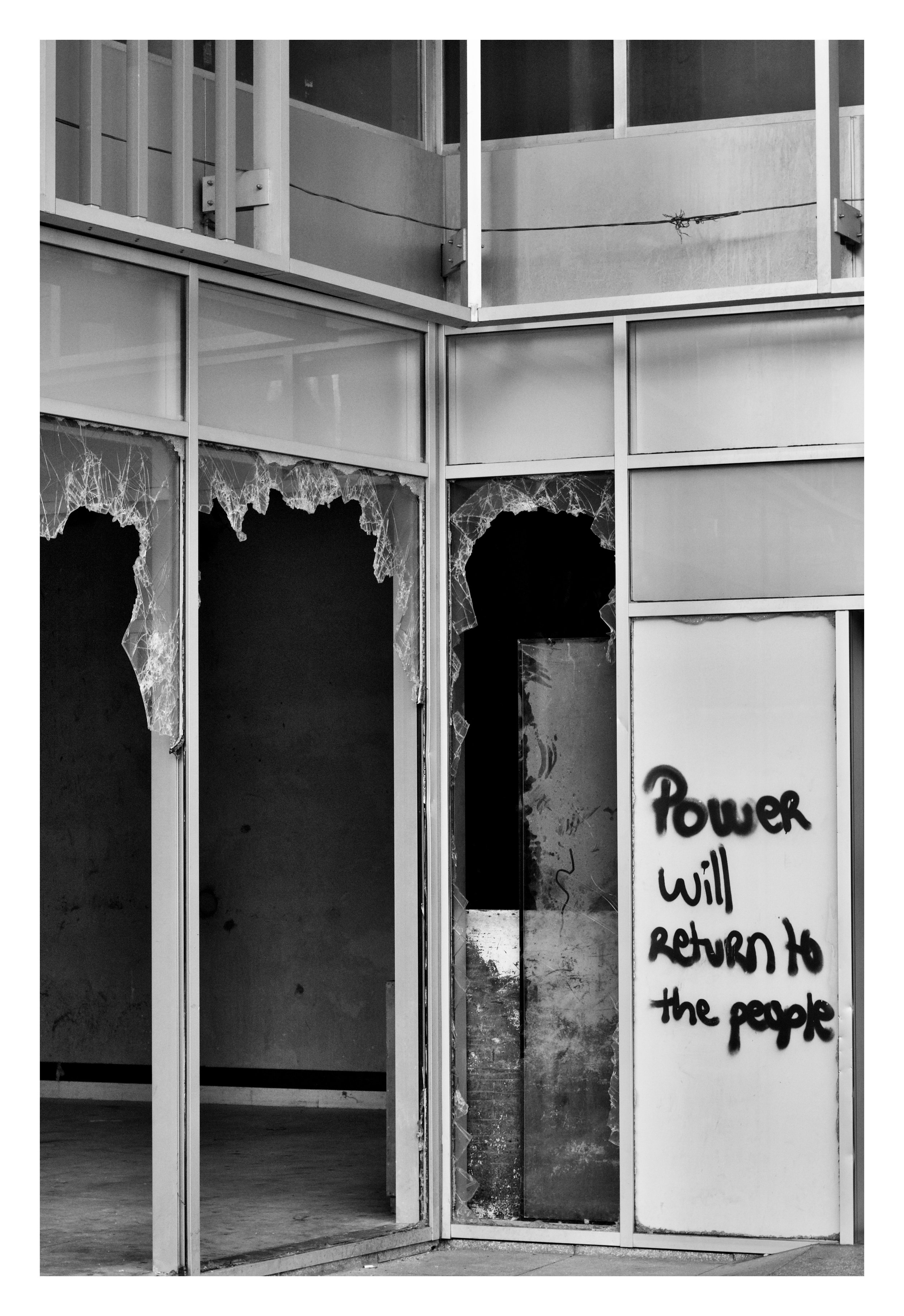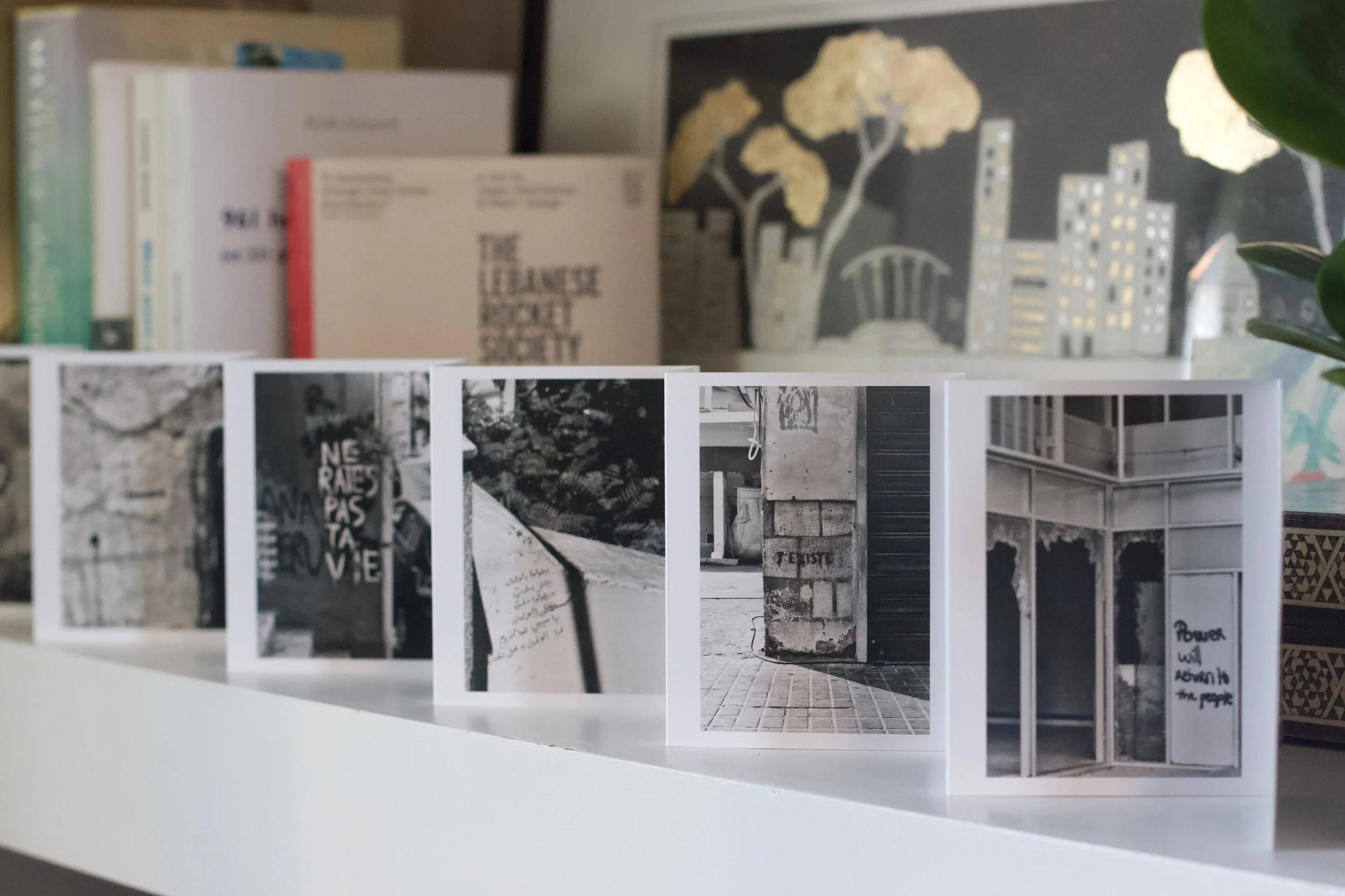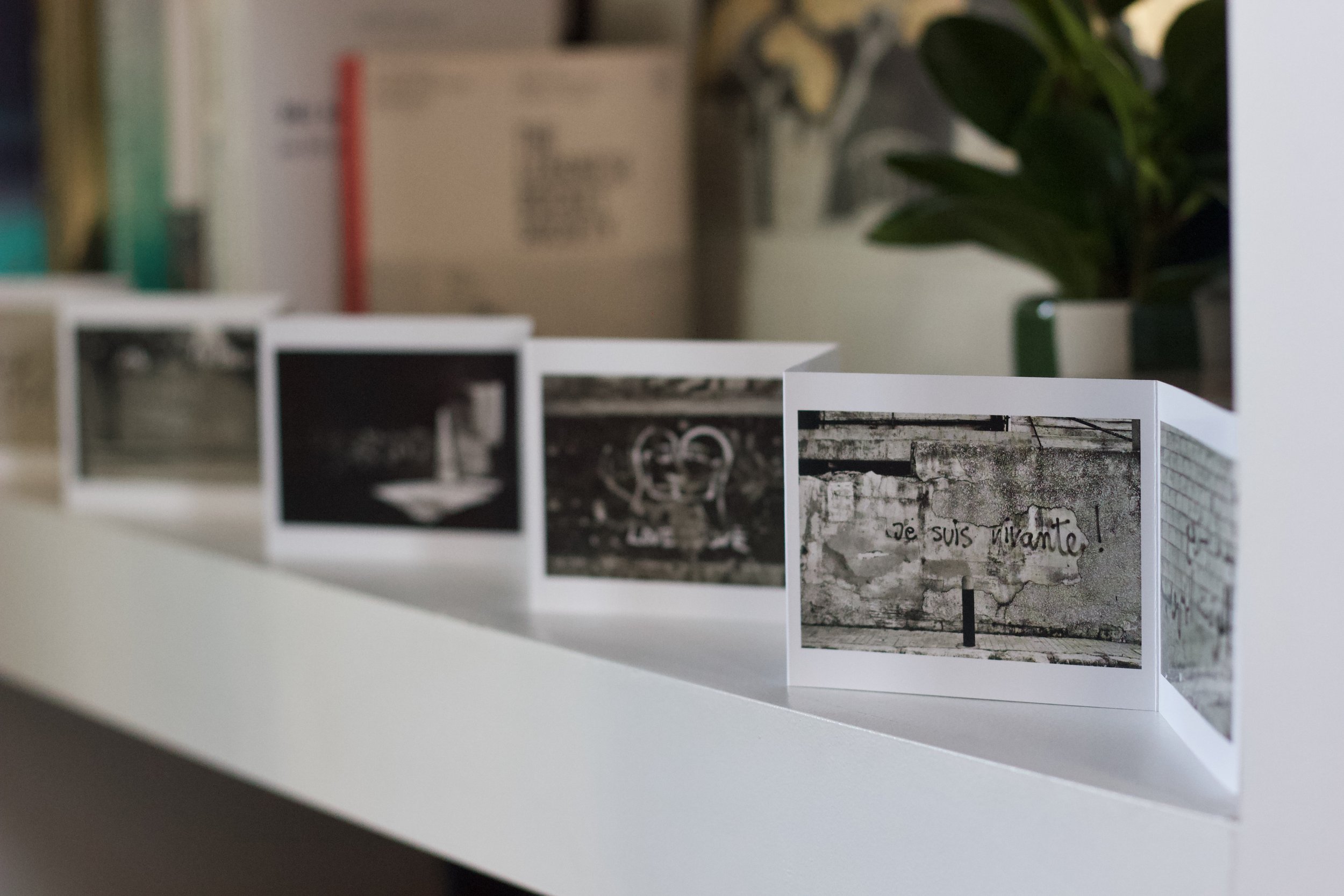BEYROUTH MURMURE
Look closer, Beirut walls whisper
Between scars left by bombs, bullets and destruction, you’ll find messages of love, pain and revolution.
30% of all proceeds go to The beirut heritage initiative
THE PORTRAIT LEPORELLO
Leporello consisting of a photographic series printed on one sheet of paper that (un)folds in an accordion-style.
The Portrait Leporello includes 12 black & white photographs (slight sepia tint) of street tags in Beirut (translation of each street tag at the back of every photograph in Fr/Eng/Arabic).
Dimensions : 96cm x 10cm (unfolded) / 8cm x 10cm (folded)
Dimensions of each photograph : 6cm x 9cm
Printed in Beirut, Lebanon.
The Landscape Leporello
Leporello consisting of a series of photographs printed on one sheet of paper that (un)folds in an accordion-style.
The Landscape Leporello includes 10 black & white photographs (slight sepia tint) of street tags in Beirut (translation of each street tag at the back of every photograph in Fr/Eng/Arabic).
Dimensions : 100cm x 8cm (unfolded) / 10cm x 8cm (folded)
Dimensions of each photograph : 9cm x 6cm
Printed in Beirut, Lebanon.
INTENTIONS
Young, I didn’t know walls could talk. I grew up in a European city where walls are silent, too busy housing their residents from one generation to the next.
The walls of Beirut weren’t granted such serenity. Ridden by bullets, torn by explosions, abandoned or disfigured by property developers, they seem forever destined to a premature death – but before disappearing, they roar.
The first time one of these walls talks to me is in 2017. As a young Lebanese from the Diaspora, I’m spending my summer exploring Beirut’s streets when I suddenly encounter a whisper. Facing me, in tiny letters, at the end of an alleyway, three words carved into plaster: ‘gay is okay’.
In this city where homosexuality remains illegal, it feels as though this wall is talking to me directly, giving me an embrace I didn’t even suspect I needed. For the first time I feel as though Beirut is finally accepting me for who I am. I’ve been carefully listening to its walls ever since.
2021. Beirut isn’t the same. The Revolution, the pandemic, the port explosion, the economic collapse. Faced with such suffering, I’m distraught to the point where I don’t know how to help… So while I wait to find a solution, I listen.
I’ve since been capturing Beirut’s cries of anger and love, fears and hopes, dreams and distress. Why? Because immortalising the feelings running through the streets of Beirut today is a means for the world to forever remember the roaring its frail walls were whispering at us.
Jeune, je ne savais pas que les murs pouvaient parler. J’ai grandi dans une ville européenne où les murs restent silencieux, trop occupés à abriter leurs occupants de génération en génération.
Les murs de Beyrouth, eux, n’ont pas eu droit à cette sérénité. Criblés de balles, déchirés par les explosions, laissés à l'abandon ou défigurés par les promoteurs immobiliers, ils semblent éternellement destinés à une mort précoce - mais avant de disparaitre, ils rugissent.
La première fois qu’un de ces murs me parle, nous sommes en 2017. Jeune Libanais issu de la Diaspora, je passe mon été à sillonner les rues de Beyrouth lorsque je tombe nez à nez avec un murmure. Face à moi, en tout petit, au détour d’une ruelle, trois mots gravés dans le plâtre : ‘gay is okay’.
Dans cette ville où l’homosexualité reste illégale, cette façade semble s’adresser directement à moi, m’offrant une étreinte dont je ne soupçonnais le besoin. Pour la première fois, je me sens entièrement accepté par cette ville que j’aime tant. Dès lors, je me mets à écouter ses murs.
2021. Beyrouth n’est plus la même. La Révolution, la pandémie, l’explosion du port, l’effondrement économique. Face à la souffrance actuelle, je suis désemparé au point de ne savoir comment aider… alors, en attendant de trouver une solution,, je l’écoute.
Je capture dès lors ses cris de colère et d’amour, de peur et d’espoir, ses rêves et désespoirs. Pourquoi ? Parce qu’immortaliser les sentiments qui animent les rues de Beyrouth aujourd’hui, c’est s’assurer que le monde se souvienne à jamais des rugissements que ses murs si fébriles nous murmuraient.
